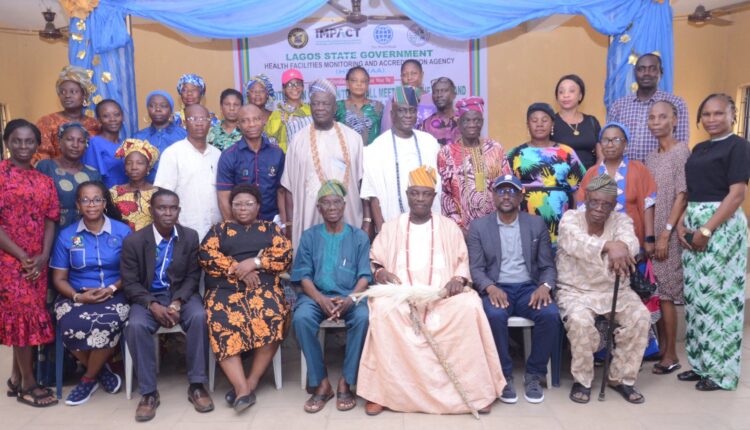
… Intensifies Sensitisation Campaign in Alimosho, Environs
In a bid to curb unprofessional practices in the health sector and reduce incidences of preventable maternal morbidity, the Lagos State Government has cautioned hospitals and clinics against the engagement of auxiliary nurses who lack professional training and certification.

The Health Facility Monitoring and Accreditation Agency (HEFAMAA) issued this warning during a sensitisation campaign and town hall meeting held on Thursday in Alimosho Local Government Area of the State.
The Permanent Secretary of HEFAMAA, Dr. Abiola Idowu, who was represented by the Head of Research and Statistics, Dr. Olonire Olufemi, condemned the infiltration of unqualified personnel in health service delivery, stressing that such practices pose serious risks to public health.
She assured that the agency would continue to intensify its oversight of both public and private health facilities to sanitise the sector and rid it of unprofessional conduct.
According to her, the Alimosho outreach was organised to enlighten residents on HEFAMAA’s mandate of registering, monitoring, and accrediting health facilities across the state.
Dr. Idowu further emphasised that the use of auxiliary nurses remains unsafe and illegal. “Auxiliary nurses have no formal training or recognised certification, yet they are sometimes found administering care in some facilities. This practice is dangerous and prohibited. Any centre caught engaging them will face strict sanctions,” she warned.
Highlighting recent innovations, the Permanent Secretary explained that HEFAMAA has introduced a Quick Response (QR) Code system across accredited health facilities. With a simple smartphone scan, patients can verify whether a facility is duly registered, confirm its service category, and even send direct feedback to the Lagos State Government.
Also speaking at the event, the Chief Nutrition Officer of HEFAMAA, Mr. Richard Olusanya, underscored the importance of ensuring that only qualified medical professionals manage health centres.
He explained that all facilities must meet strict standards in staffing, equipment, and environmental hygiene before being accredited.
“A hospital must have qualified doctors and nurses with clear areas of specialisation. We also insist that all centres display their registration certificates prominently so the public can easily verify them. The QR Code initiative further enhances transparency and promotes community participation in health regulation,” Olusanya said.
Residents of Alimosho and its environs were, however, advised to prioritise their health by visiting only accredited facilities, sharing accurate information within their communities, and promptly reporting illegal practices to the appropriate authorities.


